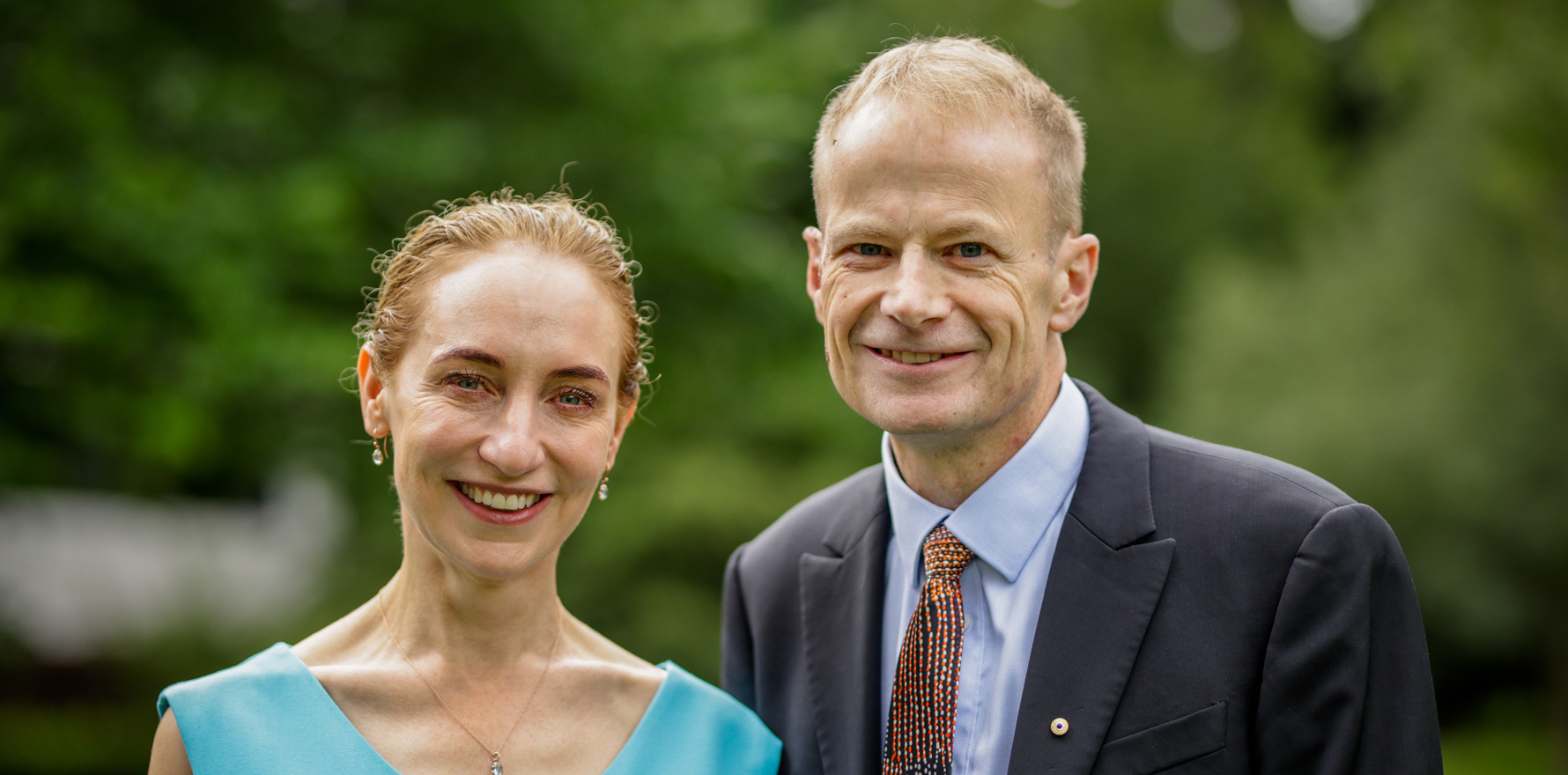
Professor Georgina Long and Professor Richard Scolyer don’t plan to waste a moment of the limelight the next year offers them as 2024 Australians of the Year.
As newly minted Australians of the Year, world-leading melanoma research and treatment pioneers Professor Georgina Long and Professor Richard Scolyer stood to receive their awards last month and were not going to waste an opportunity.
With millions of Aussies tuning into the awards it was a moment they could not pass up.
“Thousands of Aussies will be soaking up the sun working on their tans — or, as we see it, brewing their melanomas,” said Professor Long.
“When it comes to tanning, we are swimming outside the flags. A tan is skin cells in trauma from overexposure to UV radiation from the sun.
“There is nothing healthy about a tan — nothing. Our bronzed Aussie culture is actually killing us.
“So we call on advertisers and social media influencers — stop glamourising tanning, or using it to sell or advertise or entertain.
“Our mission is zero deaths from melanoma. To reach it, in addition to prevention, we need a targeted screening program and greater investment in research.”

Their call to arms was just the beginning, Professor Long told Dermatology Republic.
“We’ve got a couple of main objectives,” she said.
“At the top of everything is, the whole Australian of the Year is there to inspire, celebrate. and reflect, those are three key words.
“So Richard and I are very, very focused on bringing the nation together. I’m such a proud Australian, I love Australia and as I get older, I’m more in love with this country than ever.”
Professor Long and Professor Scolyer are co-directors of the Melanoma Institute of Australia and have been credited with saving thousands of lives with an immunotherapy approach they developed to treat melanoma.
Less than a decade ago, advanced melanoma was a fatal diagnosis, but Professor Long and Professor Scolyer’s treatment, which activates a patient’s own immune system, has made it a curable disease.
They have turned a diagnosis of advanced melanoma from a death sentence into a curable disease for more than half of patients.
“Our goal is now to cure the other 50% and, in doing so, hopefully help other cancers as well,” said Professor Long.
Against this backdrop of spreading the anti-tanning word and uniting the nation, the professional partners are now facing one of their greatest challenges. That is, of course, Professor Scolyer’s highly publicised diagnosis of terminal brain cancer.
In June 2023, when he was diagnosed with incurable grade 4 brain cancer, he and Professor Long developed a series of world-first treatments based on their melanoma breakthroughs.
Professor Scolyer has become the world’s first brain cancer patient to have pre-surgery combination immunotherapy. By undertaking an experimental treatment, which brings the risk of shortening his life, he has advanced the understanding of brain cancer and is benefiting future patients.
Richard has generated widespread public interest by publicly documenting his own cancer treatment and progress. He used his Australian of the Year acceptance speech to talk about his own deeply personal experience with cancer.
“I stand here tonight as a terminal brain cancer patient. I’m only 57 — I don’t want to die,” he said.
“I love my life, my family, my work. I’ve so much more to do and to give. I’m one of the many thousands of cancer patients who’ve travelled this path, and thousands will follow.
“Devising this world-first experimental treatment for my type of brain cancer was bold. For me, the decision to take on Georgina’s groundbreaking plan was a no-brainer.
“Here was an opportunity for us to crack another incurable cancer and make a difference — if not for me, then for others.”
Professor Long said she was proud to be an Australian because the country’s regulatory system allowed the research work to progress with Professor Scolyer’s knowledge, consent and insight.
“No other country can do it other than Germany, I think,” she said.
“I know in the US all my colleagues said I wish we could do this. And that’s because we have the TGA and a structure for people with a poor prognosis, so I’m very proud of that for Australia. It’s a good idea, it’s backed by science. We’ve got nothing to lose. We’re going to be opening a trial just like what Richard had.
“We don’t know how Richard will go, it’s early days. He’s well, but the odds are against him, they’re very, very much against him. But he’s a good eight months in and he’s well.”

